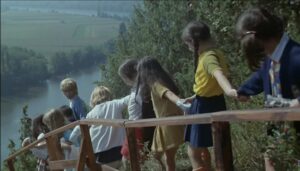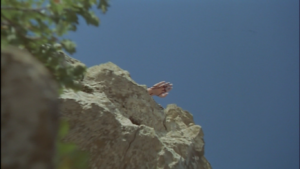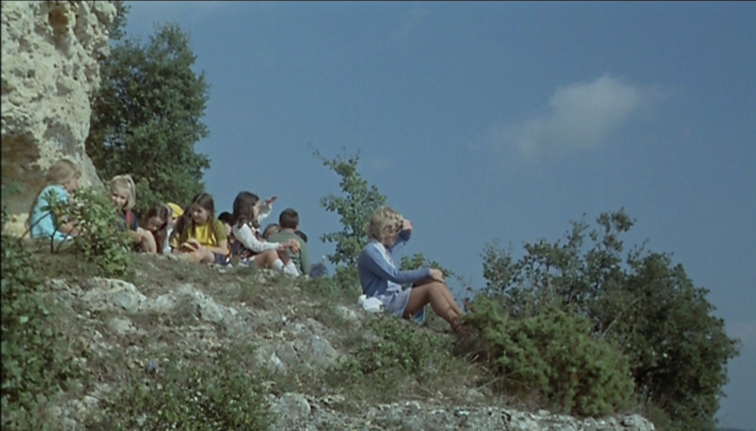It’s an ordinary school trip when Hélène guides her class to Cougnac Caves above the Dordogne River. The cave paintings are thirty-thousand-year-old, but lunch is more important for the children.
They chatter when Hélène has the children safely settled on the edge of a steep hillside with an overhanging ledge. There is a short-lived moment of enjoyment until fresh blood drips on a youngster’s sandwich. The picnic turns unexpectedly grisly. 

Hélène’s investigation reveals the body of a dead woman on the ledge above them. She also finds a cigarette lighter that she gifted Popaul, the butcher she was dating. Curiously Hélène does not inform the police. But she is frightened enough to keep her distance and lock the doors and windows of her house.
Eventually, Popaul realizes that Hélène knows he is the murderer. They have a confrontation in her house, where he corners Hélène but does not kill her; instead, he inexplicably stabs himself. As Hélène mercifully drives him to the hospital, he admits his beastly crimes. Hélène is not judgemental. She listens, and when she enigmatically smiles, it’s as if she approves of his imminent death. At the hospital, she complies with his request for a kiss before he dies. Then, walking out into the night, she drives to a nearby river (or lake) and stands like a statue beside her automobile. Time passes, and at dawn, she is gone.
Why Chabrol ends this way is obscure.
The cast: Stéphane Audran as Hélène; Jean Yanne as Paul Thomas or Popaul, the butcher
See Claude Chabrol. Le Boucher (1970). Screenplay by Claude Chabrol.

